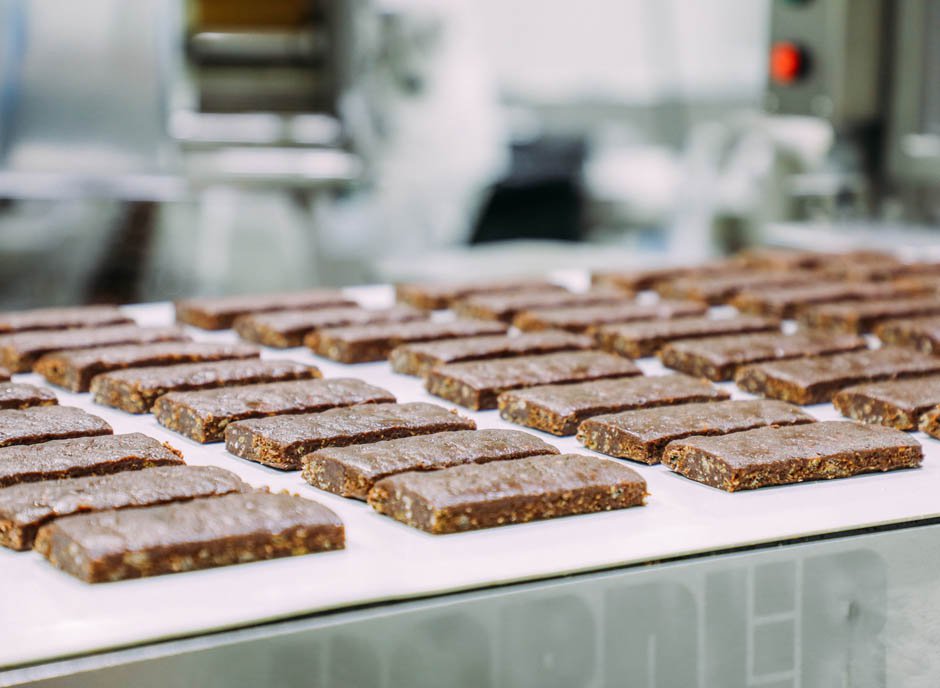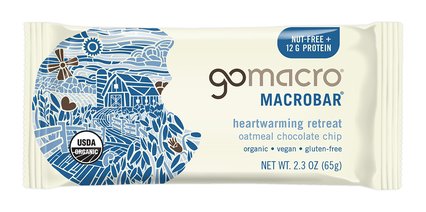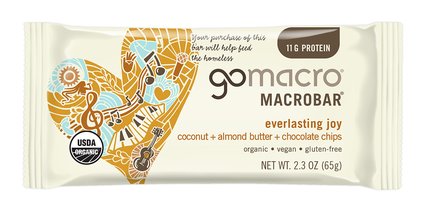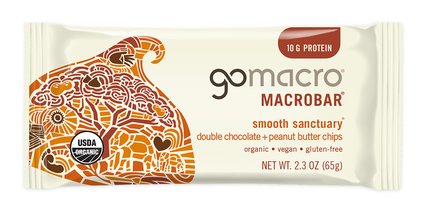Reducing Food Waste
We donate 100% of food scraps generated in production of our organic snack bars to local businesses and nonprofits to reduce waste.

As more people become aware of how their actions impact the environment, there’s been more buzz about reducing food waste. According to the U.N. Food and Agriculture Organization, a whopping 1.3 billion tons – 30% of total food – is wasted globally across the supply chain each year.
While reducing food waste requires a little extra intention and thought, it comes with many benefits. Not only does it conserve landfill space, but it also plays a major part in reducing greenhouse gas emissions. Each food item has a carbon footprint, from the machinery and agricultural inputs used to grow it, to its processing, packaging, and transportation. The less food that’s wasted, the less food that needs to be produced, which reduces pressure on our land, water, and other natural resources.
What GoMacro Is Doing
Food waste can be reduced at every stage of the supply chain, from how food is grown, all the way to our homes. Each of us can do our part in reducing food waste as individuals, but it’s also important for us to do what we can within our manufacturing processes.
In 2020, GoMacro became 64.2% waste-free by recycling and diverting 387 tons of waste from landfills, which is 98 more tons diverted than in 2019. Our goal of achieving Zero-Waste Certification requires us to be 90% waste-free, and we’re constantly looking for ways to reduce waste in our operations through reusing, recycling, and upcycling.
There are two major ways we reduce food waste associated with our manufacturing process:
1. Donating Floor Seconds
Floor seconds are fully-manufactured bars that are still safe for human consumption, but didn’t quite make the final cut to be shipped and sold in store.
This could mean that either the packaging did not meet quality specifications, the final weight of the bar was incorrect, or a number of other reasons not impacting safety of consumption. These floor seconds are inspected by our Quality Department before release, just like our sellable bars. After they’re cleared, Second Harvest Foodbank of Southern Wisconsin is contacted, and our bars then are distributed to various food banks throughout the southern portion of the state.
2. Repurposing Scrap for Animal Feed
One-hundred percent of our food scrap that isn’t suitable for donation is repurposed and sent to farms for animal feed and supplementation. Using food scraps as animal feed in a safe, resource-efficient way is an environmentally friendly alternative to sending it to the landfill, with many benefits for both farms and food businesses. We carry a very high standard for our products and although a bar might not be fit for retail, that doesn’t mean it has to go to waste! Local farm animals safely benefit from the bars that didn’t make the cut when the scraps are donated to them as plant-based food.
Our non-reworkable scrap, or Not Safe for Human Consumption (NSFHC) scrap, is collected at the end of the first and second production shifts each day. The scrap is then palletized for local dairy farmers to use.
Recycling Initiatives
In addition to reducing and repurposing our food waste and scrap, GoMacro recycles and reuses other production supplies to prevent them from ending up in landfills. With the help of Kimberly-Clark, we eliminate over 150,000 gloves and 275,000 hair nets from local landfills each year. In 2020, we recycled 5,192 pounds of hairnets, beard nets, and plastic gloves.
We also recycled 35,000 nut butter pails and continue to reuse plastic pails for our internal Farm Share program, and cardboard totes for microgreens in our garden. We are working towards a more sustainable nut-butter and syrup pumping system that would eliminate the use of pails completely.
Giving Back
In 2020 alone, we donated 490,067 pounds of food scraps to local farms for animal feed, and since inception, we’ve donated more than 727,000 bars to food pantries. We are committed to doing what we can to help our community, as well as the planet, by reducing food waste. We hope to inspire other organizations and individuals to give back.
Learn more about how you can make a difference by reducing food waste!



